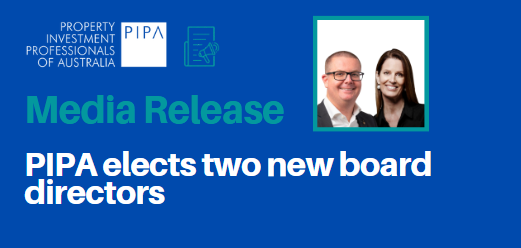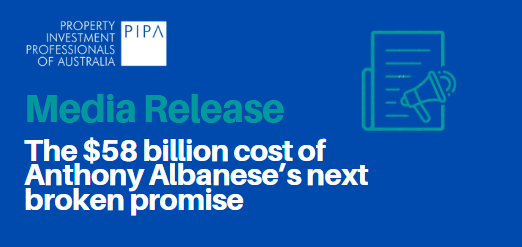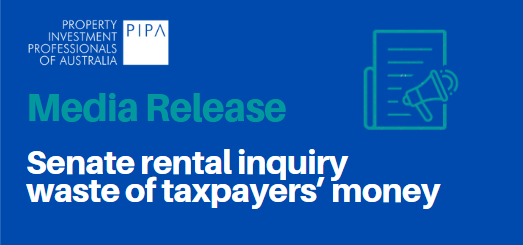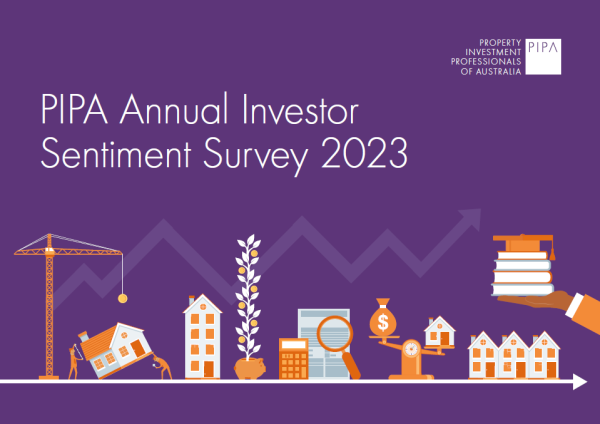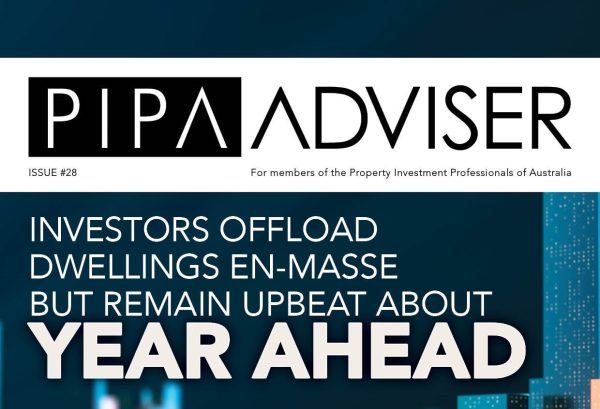Proof the war on investors is only hurting tenants, as hundreds of thousands of rentals disappear
Sep 2023Karen Millers
Categories
Location ReportsMedia releasesNational market updatesPersonal advisersPIPA AdviserPIPA Annual Investor Sentiment SurveysPIPA Member ProfilesPIPA video updatesPIPA webinarsPodcastsProperty advisersProperty newsLatest Articles
Which property cycle are we in?
Rent rises ease but crisis’ link to population density found to be tenuous
Jordan van den Berg: The ‘Robin Hood’ TikToker taking on Australian landlords
Victorian property investors face yet another new property tax as council tests levy
Startling new research shows hundreds of thousands of rental properties have been stripped from rental markets around the nation with investors offloading properties in Victoria and Queensland in particular – the states leading the war on private landlords.
The ninth annual Property Investor Sentiment Survey by peak industry body the Property Investment Professionals of Australia (PIPA) shows a surge in the sale of rental dwellings.
“A staggering 12.1% of investors sold one or more of their rental properties in the past 12 months around the nation,” PIPA chair Nicola McDougall said.
“About 43% of respondents in this year’s survey sold to an existing homeowner, while 30% sold to a first-home buyer. “Just 24% sold to another investor – down from 33% last year – which means the majority of those investment properties were likely removed from the rental market.”
Ms McDougall said last year’s survey found 16.7% of investors had sold at least one property in the previous two years.
“Clearly, this would explain the undersupply of rental properties available for tenants around the nation,” she said.
“These results are yet another stark illustration of the mass exodus of private investors from the market.”
Using 2021 Census as the baseline of 2.477 million private rental dwellings in Australia, it is estimated that hundreds of thousands of rental properties were sold in the past three years, with the majority of these bought by existing homeowners or first-home buyers.
Investors deserting Victoria and Queensland
Drilling down into this year’s survey data, 24.8% of investors sold one or more properties in Melbourne over the past year, while 23.3% sold in Brisbane. Outside of the capitals, 16.4% sold in regional Queensland and 6.4% sold in regional Victoria.
At a statewide level, 39.8% of investors sold one or more properties in Queensland over the past year, while 31.35% sold in Victoria – dwarfing the results in all other jurisdictions, according to the 2023 survey.
Ms McDougall said, like much of the country, Victoria and Queensland are in the grips of a rental crisis driven by a drastic undersupply of homes and significant demand from tenants.
“Those states are leading the charge with restrictive, unfair and inefficient legislative reforms that adversely impact property investors,” she said.
When asked to rank each state and territory from best to worst in terms of how positively they support property investors, respondents were in agreement about where they do – and don’t – feel encouraged to invest their money.
“Ranked from one to eight, one being the most accommodating and eight being the least, 57.4% scored Victoria an eight and 23.5% scored Queensland a seven. Just 3.1% of respondents scored Victoria a one and more scored Queensland in the upper quartile than the lower quartile,” Ms McDougall said.
“New South Wales is the place to invest, according to respondents, with 31.5% giving the state a score of one. Western Australia also did well, with 25.8% giving the state a one.”
Increasing taxes number one reason to sell
Ms McDougall said it remains clear investors are selling up or avoiding buying due to attacks by governments disguised as reform that make owning a rental difficult.
“At a time when tenants can least afford it, the people providing the vast majority of rental homes are selling up in droves,” she said.
Respondents cited the following as major reasons for selling over the past year:
- Governments increasing or threatening to increase taxes, duties, and levies that make property a less attractive asset to hold (47%)
- Changing tenancy legislation (43%) –
- Talk of rental freezes (34.6%) –
- Rental increase limits or caps (27.7%)
Tellingly, these reform-related stressors were cited as selling reasons disproportionately to rising interest rates and higher loan repayment costs (40.1%), negative cash flow due to higher mortgage costs (23.2%), a need to reduce total borrowings (33.1%), or offloading an underperforming asset (18.8%).
Brisbane-based property investor Merwyn Machado dumped one of his Brisbane investment properties last year when changing laws and soaring costs became too much.
“It didn’t make sense to be negatively geared and cop rising land taxes and council rates again and again,” Mr Machado said.
“Plus, the Queensland Government seems determined to try to ram through legislation that prevents landlords from looking after their property. I still have two investments in Brisbane, but I’m wondering why given the different ways the government and council are slugging me with taxes.”
More rental pain on the horizon
Unfortunately, in another sign of more pressure to come for tenants, the survey found 38% of investors feel it’s likely they will sell within the next year for myriad reasons, a staggering increase from the 19.2% in last year’s survey, Ms McDougall said.
“Again, it’s not a mystery why so many investors are planning to exit the market. Should governments further increase or introduce new taxes and compliance costs, 47.2% of respondents said they would be forced to increase rents.”
In recent times, Victoria has rolled out a $5 billion land tax hike and mooted caps on rental price increases or a rent freeze, while Queensland implemented, and then abandoned, a bizarre land tax grab last year, and introduced capped rent increases with retrospective application this year.
“Both states continue to talk about further punitive rule changes being on the agenda, which strips away surety from investors and makes owning a rental in Victoria and Queensland highly unattractive,” Ms McDougall said.
A core characteristic of repeated attacks on investors in recent years has been to paint property investors as greedy and opportunistic, she said.
“It’s unfair and unhelpful, especially given our research shows 92% of investors are grappling with higher holding costs because of interest rates, higher mortgages, and inflation.
“Despite that, 55% of investors said they were passing on just 10% or less of these higher costs to their tenants. Another 26.9% reported passing on 11% to 25% of extra expenses in the form of rent increases.”
This year’s PIPA Property Investor Sentiment Survey heard the views of 1,724 investors during the month of August – a record response.
PIPA’s membership base includes qualified property investment advisers, as well as a range of professionals whose business operations form part of the property investment process. These include financial planners, property buyers and advocates, accountants, mortgage brokers, real estate agents, conveyancers, depreciation specialists, lenders, and developers.
ENDS
For more information or to organise an interview please contact:
PIPA Chair Nicola McDougall | 0405 801 979
About PIPA
Property Investment Professionals of Australia (PIPA) is a not-for-profit association established by industry practitioners with the objective of representing and raising the professional standards of all operators involved within property investment. For more information visit www.pipa.asn.au
